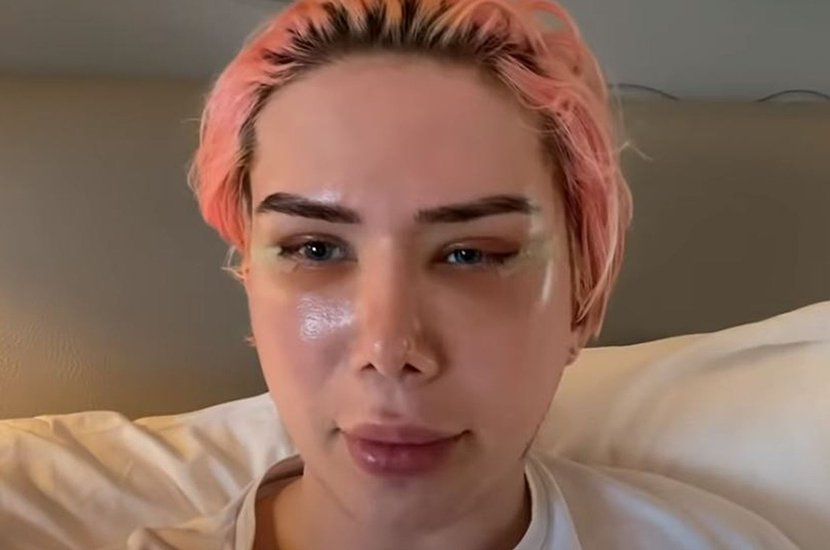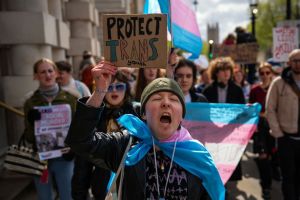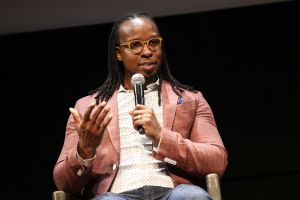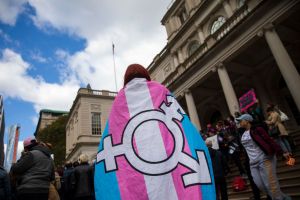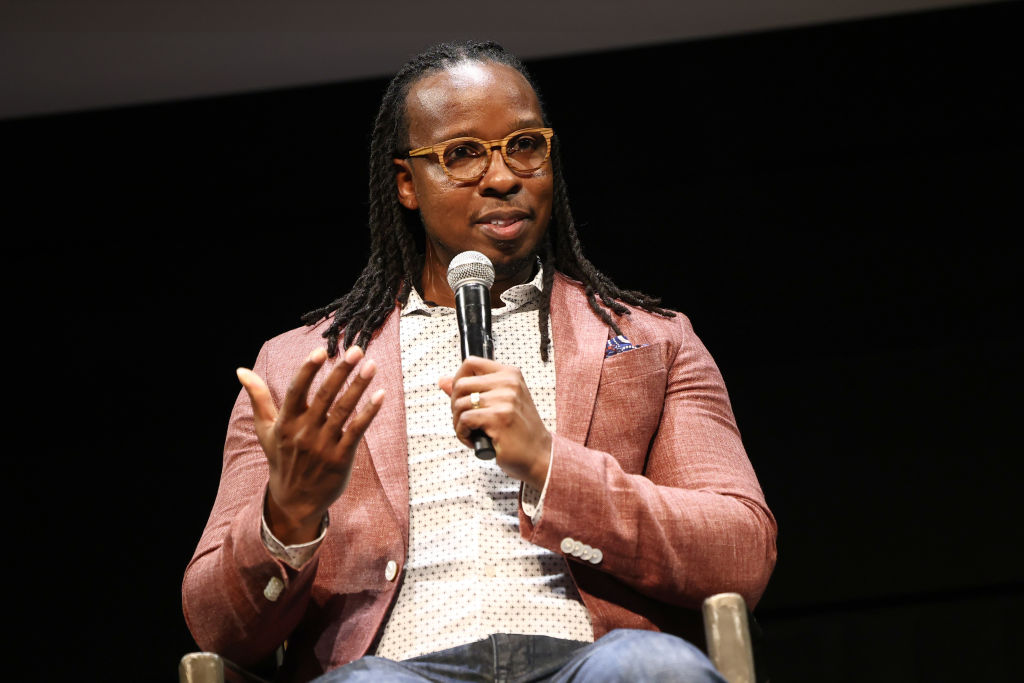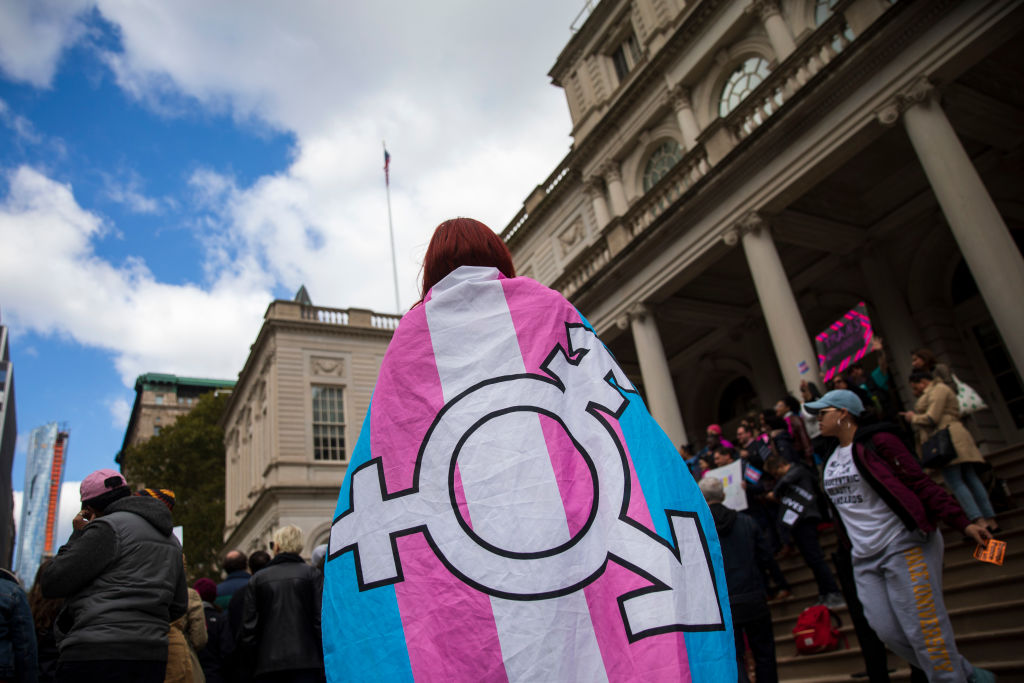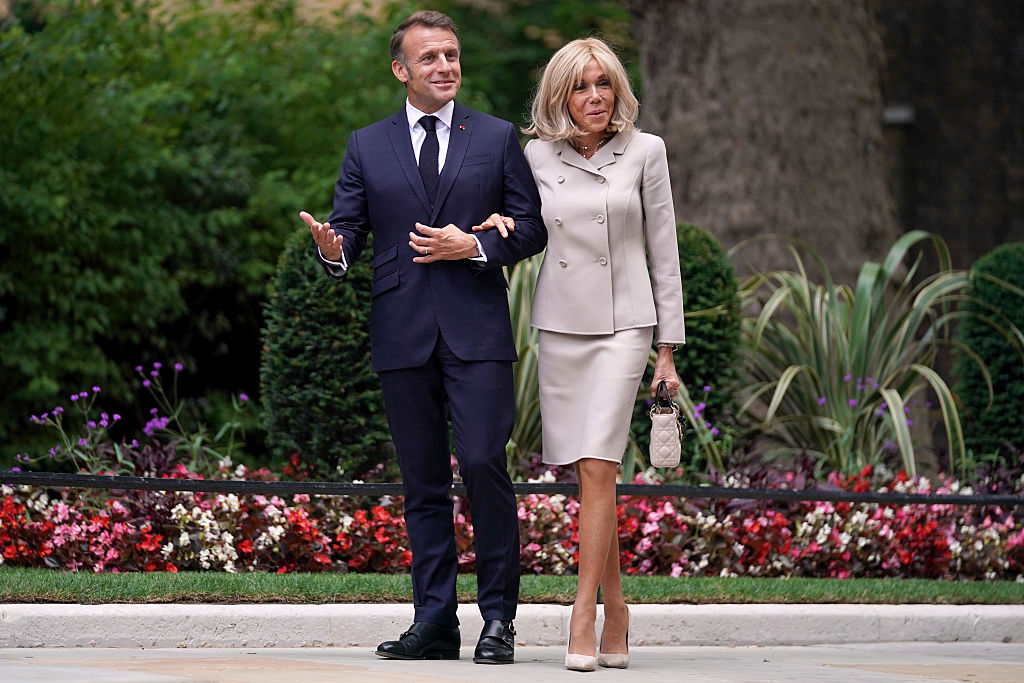Not everyone will have heard of Oli London, a British social media influencer who made news for two reasons last week. The first was that London came out as plural. Which is to say that he came out as a nonbinary person. Which is very 2020 and something so un-noteworthy that I’m sure you’ll agree it is hardly worth remarking upon. The other thing London did was more unusual. Which was that he came out as Korean.
You might guess from his name that Oli London is not Korean, but he has spent some time there (in the South rather than the North apparently) and enjoys the language and culture. So in his coming-out message London revealed some rather extreme plastic surgery to his face and announced that he wished to be known as Korean. ‘People might not get it, it’s a new concept, whatever,’ he said, demonstrating that whatever his proficiency at Korean, he retains that millennial urge to mutilate the English tongue.
On the matter of coming out as Korean, the reception was not universally warm. But you might have sympathy for the crossroads at which this confused young man sits. The current era has arrived at an uncomfortable, indeed contradictory, settlement on such matters. It has decided that a man may become a woman or a woman may become a man with great ease. Indeed, saying it makes it so. To such an extent that last month when a man in LA allegedly identified as trans in order to get into the women’s changing room of a spa and wave his penis around at the women in the changing room, the only thing anyone was meant to say to the women who complained was: ‘What’s your problem, transphobe?’
This is no exaggeration. Last weekend in California, crowds of ‘antifa’ activists assaulted a number of women and a Korean man (as it happens) who were protesting against such activities at the spa. In 2021, fighting fascism means beating up women who do not want penises flashed at them in a spa changing room. One of several reasons why this is a wonderful time to be alive.
But while the idea of changing sex has been embedded that deeply, the idea that you can change race is having a trickier time. In recent years America has seen a small spate of people who have been ‘outed’ as not being of the race they are pretending to be. Readers may recall the case of Rachel Dolezal, who was not only living as a black woman but was the head of her local chapter of the National Association for the Advancement of Colored People. Her world crashed around her in 2015 when she was outed as not just white but the child of German-Czech parents. That is, she was outed as exceedingly white. At the time, Dolezal was dismissed as a freak case. But in the years since then, other people have been outed trying honestly or otherwise to be ‘transracial’.
Last year produced the beautiful case of Jessica Krug, an associate professor at George Washington University who reluctantly came out as not just white but Jewish. Ms Krug had hitherto been making ripples in academia as a black woman. Why would a white woman pretend to be a black woman in order to advance in American academia? That is a puzzle we will have to address another day. But the reaction to Krug was essentially the same as to Dolezal. America is even more sensitive about race than it is about sex. So when black people put their foot down and say ‘You’re not joining our race’, it has a firmer impact than it does when women try to put their foot down and say men can’t join their sex.
And there the consensus has uncomfortably sat, only for Oli London (who uses the pronouns They/Them/Kor/Ean) to come along and baffle everyone. Response to his announcement fell into two broad categories. First was the ‘How dare you’ one (largely voiced by Koreans). And then there were those saying: ‘Congrats Oli, live your best life, Chukahae, etc.’
It’s a tricky one. On the side of the Koreans, I can see that having surgery to look like another race is liable to be interpreted as stereotyping, among much else. On the side of the ‘Yay’ people is the fact that it would be rude to tell a young man who’s just had elaborate and costly surgery that he is patently nuts. If somebody cuts off his arm and demands to be known as Nelson, it is kindly to refer to him as Nelson.
Personally I would suggest that the Koreans should take it as a compliment. South Korea has in recent years been the country with the highest number of plastic surgery procedures per capita of anywhere in the world. Although people debate the details, the fact is that many of these procedures do appear to be designed to make the patients look more western, which has always seemed a sad fact to me. It would suggest that a certain western standard of beauty had got fixed in the country, and it is a rather terrible thing to find neither yourself nor any of your fellow countryfolk attractive.
Perhaps things have changed a little in recent years. The arrival of K-pop may have helped. But whether or not Koreans are now more attracted to themselves, if non-Koreans are becoming so attracted to them that they are having surgery in order to resemble them, as a Korean I would chalk that up as a win on my side of the ledger.
It may take a bit of getting used to, but there have always been people who wished they were of another race. For example, there have been many men in the British Foreign Office who wished that they were Arabs. And if people can buy their way into looking like another sex, we will probably have to get used to the idea that some people will buy their way into looking like another race. You may not agree with this. But I didn’t make the rules. And it’s not remotely clear which madman did.
This article was originally published in The Spectator’s UK magazine. Subscribe to the World edition here.



